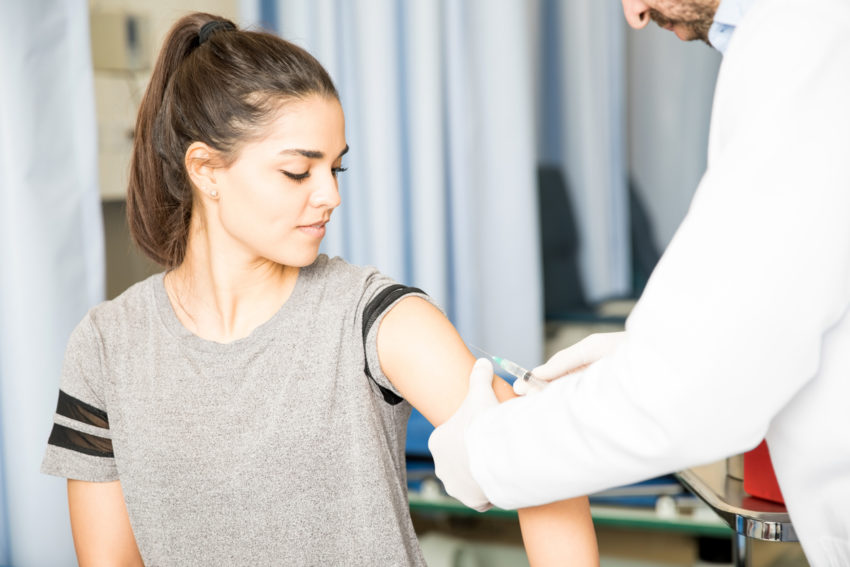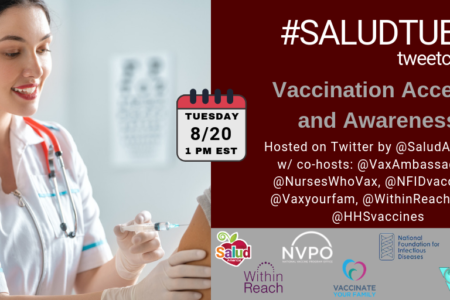
Share On Social!
Vaccinations are safe and protect the public from illness outbreaks.
Worse, vaccination hesitancy has been on the rise in America — as have the illnesses which those treatments prevent. Measles, for example, is on the rise.
This issue stems from anti-vaccination misinformation, which has spread through the internet like wildfire. This kind of information has led parents to question and, in many cases, not use this life-saving medicine.
Let’s use #SaludTues on Twitter on Tuesday, August 20, 2019, to discuss vaccinations and why they are so important for public health:
- WHAT: #SaludTues Tweetchat: “Vaccination Access and Awareness”
- TIME/DATE: 1-2 p.m. ET (Noon-1 p.m. CT), Tuesday, August 20, 2019
- WHERE: On Twitter with hashtag #SaludTues
- HOST: @SaludAmerica
- CO-HOSTS: Vaccine Ambassadors (@VaxAmbassadors), Nurses Who Vaccinate (@NursesWhoVax), National Foundation for Infectious Diseases (@NFIDvaccines), Vaccinate Your Family (@Vaxyourfam), Within Reach (@WithinReachWA), and U.S. Dept. Health & Human Services National Vaccine Program (@HHSvaccines)
We’ll open the floor to relevant information, your stories, and collective experiences as we explore:
- How vaccination access and awareness impact Latinos, all Americans?
- Why are vaccines needed to maintain public health?
- What vaccination-access barriers do minority groups face?
Be sure to use the hashtag #SaludTues to follow the conversation on Twitter and share information, stories, and advice about clean air quality and regulation.
Click here to learn about the Salud America! #SaludTues tweetchats, see upcoming and past tweetchats — discover how you can get involved.
Editor’s Note: This tweetchat is part of a collaboration between Salud America! and the Hoffman Toxicant-Induced Loss of Tolerance (TILT) program at UT Health- San Antonio. To find out if you are experiencing TILT due to exposure from everyday foods, chemicals, or drugs, take a self-assessment or learn more about TILT.
Explore More:
TweetchatBy The Numbers
1
out of 10
Pedestrians survive when hit by a car at 40 MPH



